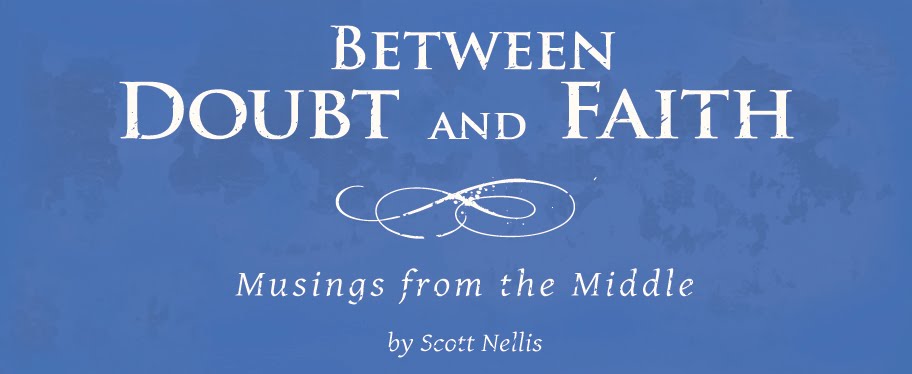Something is bothering my soul. I began to notice it early in the pandemic; however, adequately identifying the source of my discontent became elusive. Initially, I thought it was the utter chaos of the COVID-19 pandemic. I would go into a store and see labels instructing me which direction to walk in an aisle ... I heard 'experts' on the news teaching me how to wipe down my groceries or my packages from the mail ... I saw people directing me to use only specific (and often outlying) store entrances, rather than being able to use the most accessible ones ... I would go to my physician's office and be instructed to take off my mostly-impervious cloth mask, in order to put on their cheap, loose-fitting, disposable one. It all felt like uneducated, non-scientific, illogical insanity. It felt like everyone, every company, every business, was trying to cover their butt, with little-to-no scientific reasoning behind their actions.
Then, as the months wore on, this insanity gradually subsided and everyone moved into a more casual, sustainable approach to 'living in a pandemic.' We all mellowed, if only a little. Life has not returned to a pre-pandemic normal, but life goes on mostly uninterrupted. Most people take precautions, such as wearing a mask in public, indoor spaces (though many do not). Many have received COVID vaccinations, but many have not. Surges in COVID cases rise ... then fall ... then rise again ... then fall again. Businesses, restaurants, schools, organizations, and churches have made necessary adjustments to their operating models. And, for the most part, it's been effective. Life continues. Fewer and fewer people are dying because of this vicious virus.
And yet ... something still bothers my soul.
It's something that has compelled me to write again in this blog. It's something that seems to have no easy solution ... no 'fix.' In the line of work that I'm in, I've had the privilege of seeing (and learning about) the wide spectrum of health, circumstances, and emotions on which people find themselves.
What is bothering my soul is the FRAGILITY of life.
I've long known that — while we may be loved equally before God — we are not all born with the same abilities, immunity, privileges, opportunities, and more. But this pandemic, like never before, has made explicit the wide range of health issues that dictate what a person can and cannot do in life.
In short, we're all more fragile than I ever thought.
And this fragility bothers my soul deeply. Because I desperately want people to feel 'safe' in public again. I desperately want people to feel that they can sing in public, attend a concert or sporting event, walk through a mall, eat at a restaurant, etc. And ... the sobering reality is ... that many cannot. Or believe they cannot. Or don't want to take that risk right now. Or ever again.
Life has always consisted of this fragility. So what's different now? And why is it so troubling now?
I think what is now different (and troubling) is that a much larger, and more visible, range of people are feeling the necessity to take extraordinary precautions in life. And perhaps the visibility of these precautions reminds me of our human fragility. And that fragility scares me.
“ And perhaps the visibility of these precautions reminds me of our human fragility.
I believe in protecting others and myself due to a faith-motivated 'love of neighbor.' I make every reasonable attempt to live in such a way as to minimize infection (or harm of any kind) to those with whom I come into contact. But in spite of all of my efforts, my lament remains. We are all fragile. We are all in a vulnerable place because of this global pandemic. It's not over yet and may never be. And all of this frightens me, heightens my anxiety, and troubles my soul.
My own theology ... my own faith ... tells me that life is indeed fragile. That human beings are flawed and that we also live in a flawed world where diseases, and violence, and racism, and hatred, and many other bad things, exist. I get it. I accept it. But I can still lament it. I can still hurt because of it. And even as I lament, I'll still stay the course. I will continue to live in ways that protect the well-being of others. I will care for those who become ill (vaccinated or not). I will pray. I will hope.





